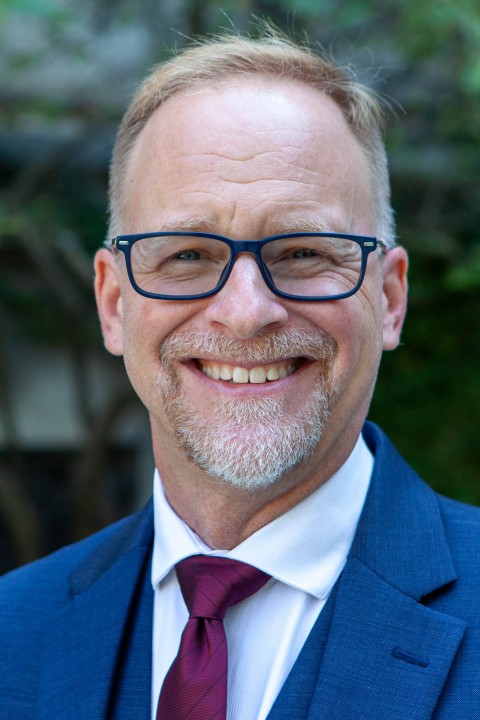While not a native of Chicago, Chris Skrable fell in love with the city when he moved to the Midwest two decades ago. A native of Virginia, and a frequent visitor of Puerto Rico, Skrable came to Chicago in 2004 and joined the University community in 2013 as part of the team at the University Community Service Center.

Now the Executive Director of Chicago Studies and Experiential Learning, Skrable is an expert on the city and its history. He has worked with his colleagues to create a new CIV sequence for the Core curriculum focused on Chicago. The trio of courses, which will first focus on Chicago’s Latine communities and how they have transformed the city, will launch during the upcoming Spring Quarter. We sat down with Skrable to talk about Chicago, how you develop a Study Abroad-like experience locally and what he likes most about the city that he calls home.
What makes Chicago such an interesting place to study and learn from?
It’s the fascination around Chicago and the kind of Phoenix rising from the ashes, right? The city had burned down, and nobody could believe it had rebuilt itself bigger and better than before. It is the great city in the middle of the country from the 19th century during a time when the United States was really thinking about what it meant to have a frontier and what it meant to expand to the North and West.
Not only is it a frontier town and a railroad town, but it also became this major industrial and manufacturing core for the United States. So, it's a deeply American city. It is the city of the American century, not unlike a lot of the coastal cities. It’s also a place that has these strongly immigrant beginnings. Immigrants constantly expanded Chicago from all over the world with their cultures. It ended up forming these sorts of ethnic enclaves around the city that make up a city of neighborhoods.
How will the first Chicago Studies CIV sequence enhance the learning experience for students in the College?
The Core is meant to be foundational for the rest of the College experience. Unlike some disciplinary courses that students take, Core classes are meant to teach students what thinking can look like. Students who take this sequence will be taught that Chicago can be a partner in their thinking.
I think it's really exciting and very significant. For what we're trying to do across the whole College, we now have the opportunity to do some of this work in the Core. We talk about the Life of the Mind—that begins with the Core at the University of Chicago. And having Chicago in the Core says something about how seriously we take the city as part of this commitment to intellectual and philosophical inquiry.
How was the Study Abroad model used to shape the unique courses and experiences that students will come across when taking the three Latin American/Latinx Chicago courses?
We're looking at the history of and the ways in which specifically Latine communities in Chicago have shaped the city and have been formed by being in the city. There will be a heavy emphasis on visiting and spending time with these communities around Chicago. We’ll look at the cultural norms that they've built up around themselves, some of which are imported and some of which have been created right here and then exported.